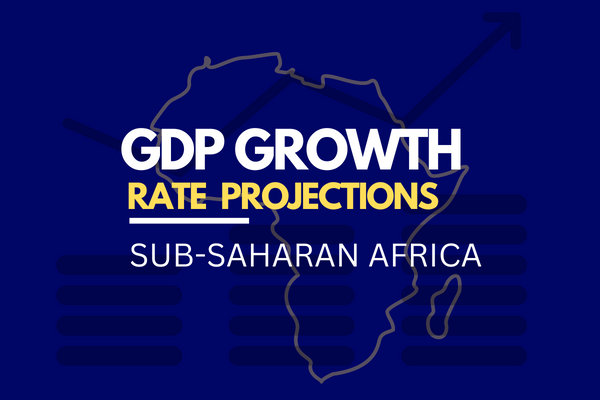The International Monetary Fund has projected that 26 Sub-Saharan African Countries, including Niger, South Sudan and Democratic Republic of Congo, will end 2022 with GDP growth rates higher than Ghana.
In their reviewed World Economic Outlook, the IMF forecast Ghana’s Gross Domestic Product (GDP) growth rate to slow down from 5.36% in 2021 to 3.59% by the end of the year, with a further decline to 2.84% in 2023.
According to the Fund, Seychelles will experience the highest economic expansion of 10.90% while Malawi is projected to end the year with the lowest growth rate of 0.94%.
Ghana's economy is experiencing some turbulence with consumer and producer inflation hitting record levels of 37.2% and 45.6% respectively. The Cedi continues to experience exchange rate wear and tear as $1.00 trades for more than GHS14.00.
Data from Bank of Ghana also indicate that the country's international reserves have dropped from $9.9 billion at the beginning of the year to $6.6 billion as of September 2022 translating into less than three months of import cover.
According to the IMF, the widening fiscal needs, and limited finance, has compelled few sub-Saharan African countries to tap their central banks in 2020 to help fund their crisis spending (Democratic Republic of the Congo, Ghana, Mauritius, Nigeria, South Sudan, Uganda).
"If the pandemic persists, some may have little choice but to look to this source of funding once again. Direct central bank lending to the government may jeopardize the former’s long-term effectiveness and undermine its commitment to contain inflation, with potential longer-term costs for the most vulnerable segments of the population. But in extraordinary circumstances, it may simply be impossible to obtain enough financing from any other source. Countries should use such financing only as a last resort, and if used, it should be on market terms, time-limited, and with an explicit repayment plan over the medium term. Repeated monetization would de-anchor inflation expectations and add to pressures on the currency" the IMF stressed.
Ghana is currently engaging the IMF for a bailout worth $3 billion with debt sustainability and restructuring being key determinants to getting the Fund's greenlight to kick start a programme.
Latest Stories
-
Paris 2024: Opening ceremony showcases grandiose celebration of French culture and diversity
2 hours -
How decline of Indian vultures led to 500,000 human deaths
3 hours -
Paris 2024: Ghana rocks ‘fabulous fugu’ at olympics opening ceremony
4 hours -
Trust Hospital faces financial strain with rising debt levels – Auditor-General’s report
4 hours -
Electrochem lease: Allocate portions of land to Songor people – Resident demand
4 hours -
82 widows receive financial aid from Chayil Foundation
4 hours -
The silent struggles: Female journalists grapple with Ghana’s high cost of living
5 hours -
BoG yet to make any payment to Service Ghana Auto Group
5 hours -
‘Crushed Young’: The Multimedia Group, JL Properties surprise accident victim’s family with fully-furnished apartment
5 hours -
Asante Kotoko needs structure that would outlive any administration – Opoku Nti
6 hours -
JoyNews exposé on Customs officials demanding bribes airs on July 29
6 hours -
JoyNews Impact Maker Awardee ships first consignment of honey from Kwahu Afram Plains
7 hours -
Joint committee under fire over report on salt mining lease granted Electrochem
7 hours -
Life Lounge with Edem Knight-Tay: Don’t be beaten the third time
8 hours -
Pro-NPP group launched to help ‘Break the 8’
8 hours

